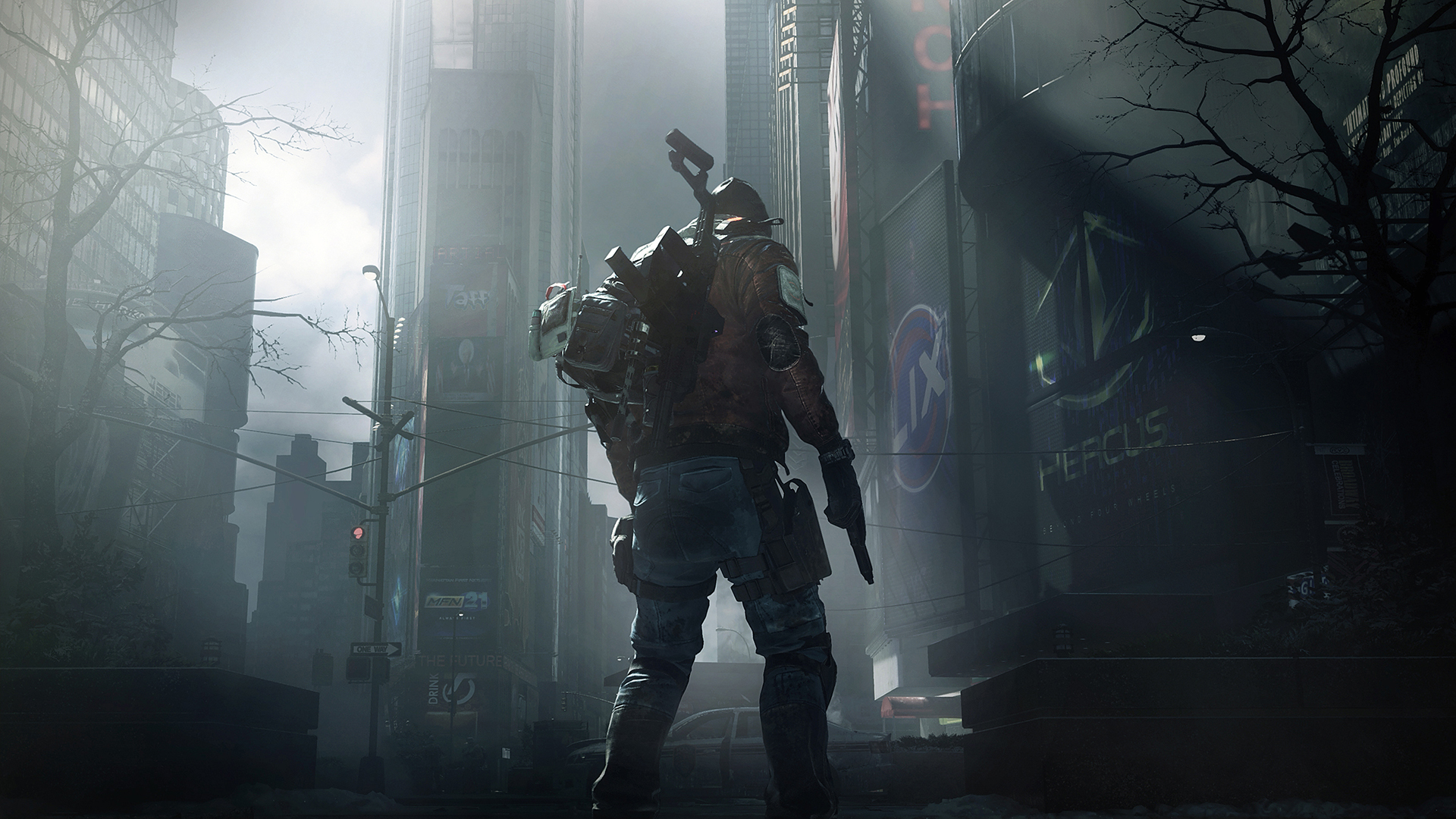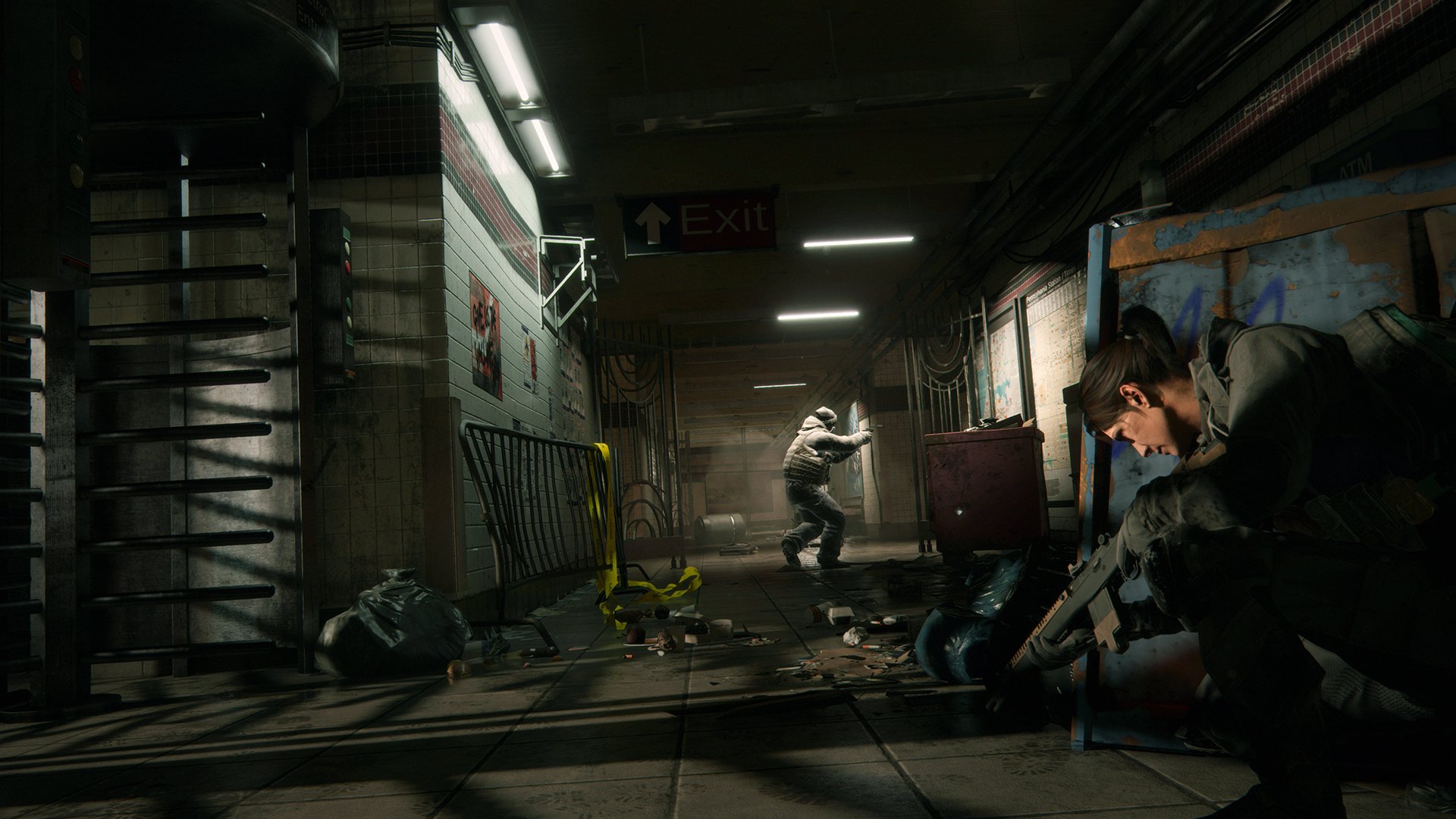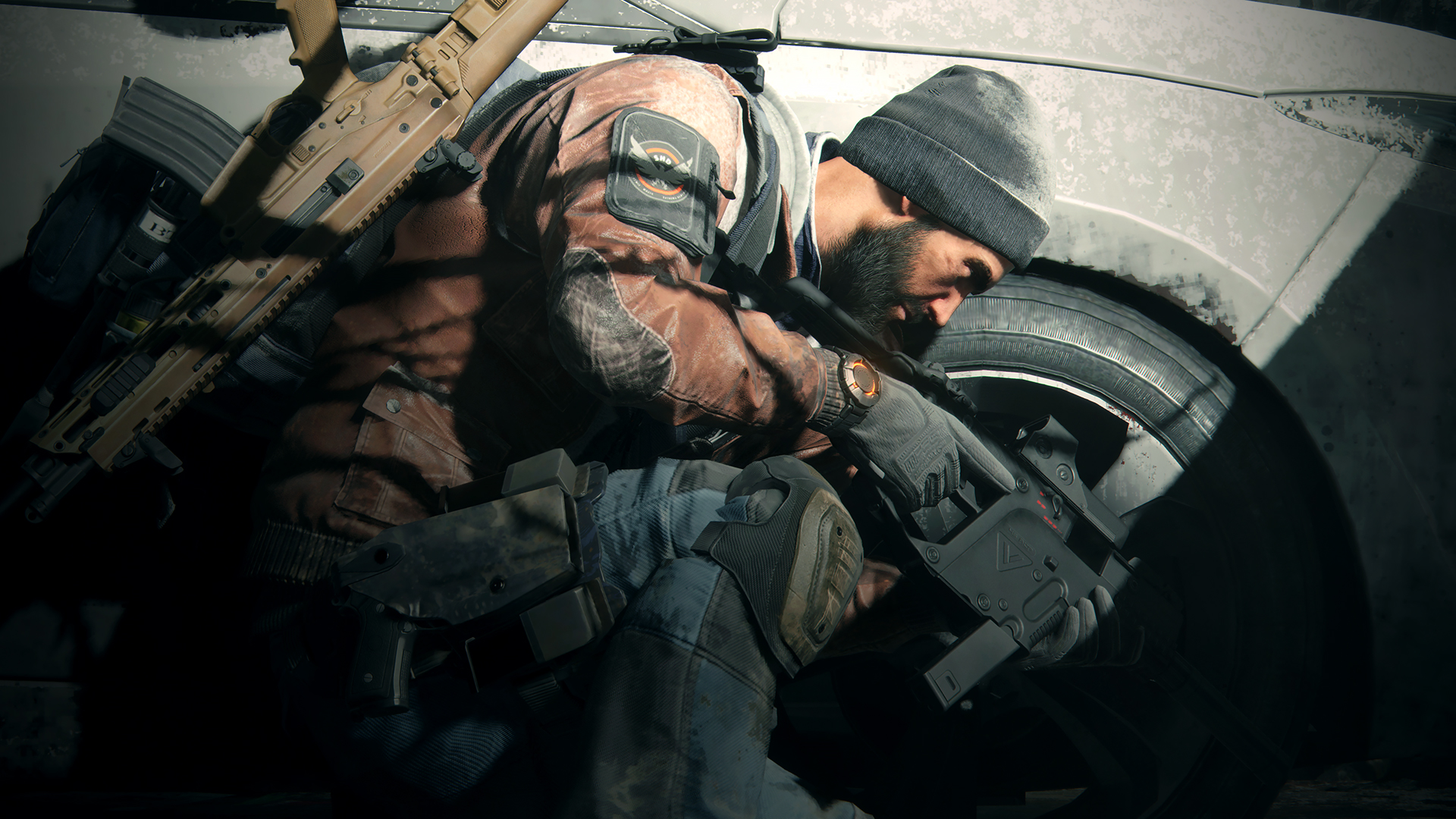Hell is other people - The Divisions Dark Zone is an anxious PvP playground
We are not a strong team, so when we see a silhouette approach us from the absurdly filmic backlit subway corridor, we wordlessly stop, line up, and raise our piddly little weapons. It helps, a little. This is a human player - you can tell because he hasn’t automatically rung out some tiresome stock phrase about not respecting the authorities - and that’s terrifying. He has his gun raised too. FWUMPH, it goes, gently arcing a grenade over my teammate’s shoulder from its underslung second barrel. All three of us twitch visibly, probably more to do with shaking thumbs on analog sticks than any actual need to move. He was way too close to have missed. This was a threat, a demonstration of ordinance superiority.
It’s a gorilla beating its chest, a crab raising its crusher claw - he’s better than us, and he knows it. But we still outnumber him. Our ersatz leader emotes at him - it can’t be a coincidence that this nervy game’s default wave is an extended arm and a tiny flick of the wrist, halfway between a “hello” and a “help me” - and raises his gun again. Our new friend returns the gesture. Now all three of us wave at him. The tension’s lifting.

But now he does nothing. He keeps his weapon raised and, sickeningly slowly, points it at all three of us by turn. It might be time for action - the two of us on the flanks of our line-up move to surround him. This isn’t for any tactical reason, it just feels better. We aim at his head, switching to weapons best suited for dealing maximum critical hit damage. We can probably put him down before he fires more than one grenade. Probably.
And then he starts doing jumping jacks. Suddenly, we’re all doing jumping jacks. And then he’s in our squad - joining is perfectly seamless, someone invites you with a click of the right-stick, and you accept with the same button press - and we spend the next hour roaming New York like some tooled-up, wintry boy band, dancing whenever we’re not dropping rogue agents and street gangs.
This is the gut-wrenching rhythm of The Division’s PvP area, the Dark Zone. You meet a human player, there’s a stand-off, and they either leave (everyone walks backwards in this instance, keeping guns trained on targets until they’re out of sight), join your team, or someone dies. Then you meet someone else, and it begins again, this 1-2-3 waltz of nervous exhaustion.
In contaminated zones - marked danger areas filled with elite enemies - this can become beautifully comic, like when an LMG-toting AI baddie busts in on your quiet time with another human, forcing you to team up to kill him for interrupting, before returning to exactly the same stand-off you started with. Just because someone helped you, doesn’t mean you should trust them. In fact, if they were pretty strong during the skirmish, it’s less reason to do so.

The Division’s increasingly being compared to Destiny - if only because it’s the only similarly structured game out there - and, in my short time with it, its PvE efforts don’t quite match up for moment-to-moment, surface-level satisfaction. But the Dark Zone isn’t anything like Destiny - it’s what would happen if someone turned off friendly fire on Venus, utterly breaking that gently enforced co-operation that makes a solar system at war feel more like space opera-themed paintball. It’s quietly spectacular, and constantly on the verge of terrifying, an area that feels truly dangerous for reasons other than over-levelled enemies.
Sign up to the GamesRadar+ Newsletter
Weekly digests, tales from the communities you love, and more
You only need to actually open fire on a human player to see quite how dangerous it can become. Breaching the peace turns you into a Rogue agent, a timed effect that flags you up on other players’ maps as a priority target. Suddenly, the game isn’t one of shaky relationships, it’s hide and seek. My team found a Rogue hiding in a subterranean bathroom, running down the clock on their bounty. They emoted furiously when we found them, showing clearly that there was no aggression here. Maybe this was all a mistake? He got a bit too jumpy and hit an off-limits target? We gunned him down anyway. The promise of a reward was too much to pass up.

Rogue status becomes even more interesting as a team. If one player flies off the handle, the entire squad is marked as Rogue. You can either detach from the squad and take down your ex-colleagues alone, or you can become the A-Team together, on the run from everyone, with no allegiance to anyone other than yourselves. The kill-or-be-killed thrill is wonderful, not least when you head to an extraction point - the only way of keeping loot earned in the Dark Zone is to call in a helicopter to airlift it out for “decontamination” - and fire a flare in the air. This always summons up some AI enemies, but it’s also a 'come get me' middle finger to every player in the surrounding area. Scant cover, major distractions and a bounty on your head. It’s an emergent Horde mode against anyone who cares to join in.
And, crucially, it’s the fear of other people that makes this all feel special. Something about the lack of a formal structure makes the Dark Zone shiveringly unpredictable - I’m just as aware of other players’ skill in Destiny’s Crucible, but I’m not afraid of them. What if another squad is farming the same area as my own? Who might have seen me take down that AI mini-boss, and want a reward themselves? And what of the Rogues - are they hard bastards looking for every fight they can get, or the scared pile of loot in human clothes we found in that bathroom?
Where most competitive multiplayer modes feel like paeans to skill and hard work, The Division’s feels different, more instinctual. Every decision is motivated by curiously mundane animal fear, and every situation boils down to fight or flight - both options can be genuinely thrilling. It makes the Dark Zone feel unique, at least in the realm of AAA bang-pew fare. That’s more than enough to keep me interested in the final product.



